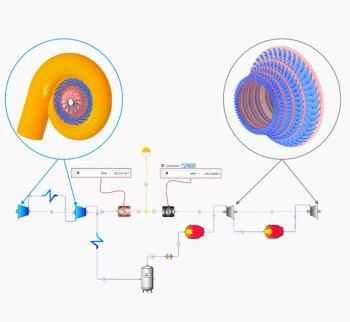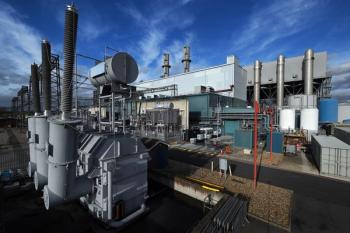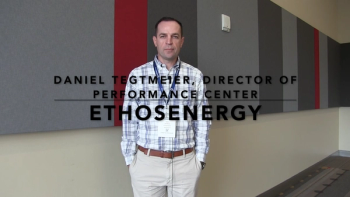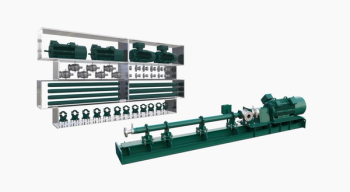
Mitsubishi Heavy Industries, EGAT Research Hydrogen Co-Firing in Thailand
As part of a memorandum of understanding (MoU), the companies aim to achieve a gas turbine hydrogen co-firing ratio of 20% at an EGAT power plant.
The Electricity Generating Authority of Thailand (EGAT) and Mitsubishi Heavy Industries (MHI) agreed to research the integration of hydrogen co-firing technologies in gas turbine-driven power generation facilities in Thailand. Backing the country’s goal of reaching carbon neutrality by 2050 and net-zero emissions by 2065, the partners’ research will facilitate the conversion of thermal power plants to clean-fuel operation.
"The signing with MHI marks one of the pioneering initiatives in Thailand to integrate alternative and clean fuels with Japanese technology to produce more environmentally friendly electricity. This initiative aligns with Thailand's strategy to promote the use of hydrogen,” said Narin Phoawanich, Deputy Governor - Fuel of EGAT. “Additionally, it provides an opportunity for technology exchange and the development of hydrogen projects across the value chain with Japanese companies at the international level. This partnership is expected to drive advancements in clean energy technology, enhance business opportunities in Thailand's electricity production sector, and contribute to environmental sustainability.”
The agreement, a signed MoU, will begin with a hydrogen co-firing pilot project at an EGAT power plant in Thailand, with an initial feasibility study to be performed by March 2025. For this pilot project and at EGAT’s request, the companies plan to achieve a hydrogen co-firing ratio of 20% with assistance from Mitsubishi Power.
This research is an extension of an ongoing collaboration between MHI and EGAT to introduce hydrogen co-firing, adding to an MoU from 2022 to obtain and exchange information on clean fuel power generation, clean hydrogen, and carbon capture, utilization, and storage technologies. During the early partnership phase, the duo conducted preliminary investigations of MHI’s hydrogen co-firing technology with gas turbines at existing EGAT plants.
Supporting the agreement further, EGAT is creating a strategic hydrogen supply chain management plan, which includes the transportation, storage, and distribution of hydrogen in Thailand. MHI and EGAT will conduct an evolved feasibility study based on the results of their partnership.
Previously in 2024,
The company has now successfully delivered seven of eight M701 JAC units across the two large-scale 2,650 MW GTCC power plants in Rayong and Chonburi, comprising a collective output of 5,300 MW. Rayong and Chonburi are expected to be fully operational by fall 2024, with all eight gas turbine units supporting the electricity needs of industrial and economic hubs in eastern Thailand. Six currently installed units across the Gulf Sriracha power plant (Chonburi) and the Rayong plant have demonstrated smooth operation, with a total accumulation exceeding 75,000 actual operating hours.
Newsletter
Power your knowledge with the latest in turbine technology, engineering advances, and energy solutions—subscribe to Turbomachinery International today.




